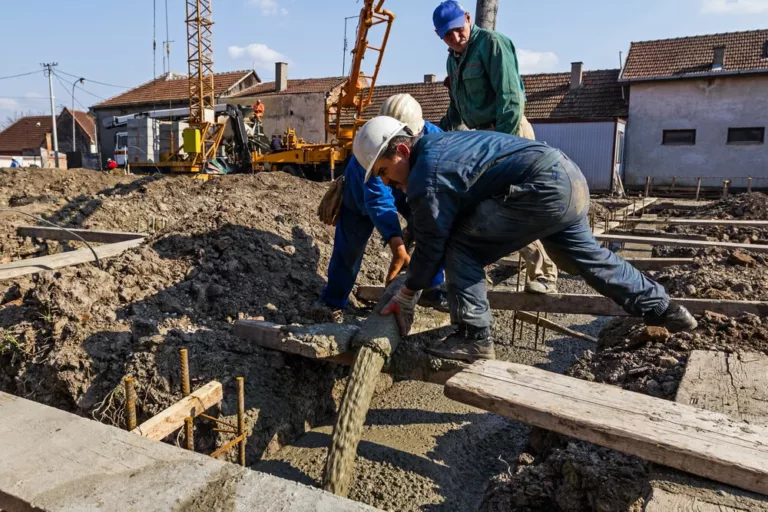New York prevailing wage law requires contractors to pay construction workers on public construction worksites at hourly rates that are much higher than the minimum wage rates (currently $15 per hour in New York City). Below are the top ten issues to keep in mind about prevailing wage law.
1. What is the prevailing wage?
It is the rate of pay that contractors in New York public worksites have to pay their workers. It is a much higher rate than the regular minimum wage rate that applies to other workers, because the prevailing wage rate is based on the hourly rates that unions pay specific types of workers in a given market.
2. What is a “public work” worksite?
It could be a construction worksite or a building. Three facts must be true for a worksite to be a “public work” that requires payment of prevailing wages:
a. A public agency or government entity must have entered into a contract requiring it to pay a private entity or company to perform work.
b. The work has to be construction-like in nature, such as repair, maintenance, construction, erection, or demolition.
c. The purpose of the work has to be for the benefit of the public, meaning that whatever it being built or done is for the benefit of the general public.
3. How much do I get paid per hour if I am entitled to prevailing wages?
It depends on what the worker does on the worksite. For example, a boilermaker, a cement mason, a plumber, and a plasterer will get different rates per hour. In New York City, the Comptroller’s Office posts a schedule every year listing the different rates that each type, or trade, of employee should get per hour (see here: https://comptroller.nyc.gov/services/for-the-public/nyc-wage-standards/wage-schedules/). In the rest of New York State, the Commissioner of Labor posts of a schedule every year listing the rates that apply in different counties in New York (see here: https://apps.labor.ny.gov/wpp/publicViewPWChanges.do?method=showIt).
4. Do I get overtime if I am a construction worker in a prevailing wage worksite?
Yes, and the overtime rules are different than in regular jobs. Construction workers engaged in prevailing wage public works can be entitled to overtime at the rate of 1.5 times their regular rates for hours worked over 7 or 8 per day, for hours worked over 40, and for hours worked on Saturdays. In addition to this, many construction workers in prevailing wage jobs have to be paid double their regular hourly rates for hours worked on Sunday and on certain holidays. For example, a bricklayer working in a public work in Manhattan in April 2021 has to be paid $56.49 per regular hour, 1.5x times this amount (i.e., $84.74) for hours worked over 40 per week, on Saturday, and over 7 or 8 on a day (depending on the day and what other work is done on the site), and double time (i.e., $112.98) per hour worked on Sunday and on some holidays like New Year’s Day and Memorial Day.
5. Do construction workers in prevailing wage worksites get benefits?
The prevailing wage laws of New York require contractors to pay the workers a given amount per hour, in addition to and apart from the hourly wage rates. For example, a bricklayer in New York City working in April 2021 has to be paid at least $34.30 per hour in supplemental benefits in addition to his wage rates explained above. Alternatively, the contractors can provide more traditional benefits to workers, such as 401(k) programs to which the employer contributes money and insurance coverage (health, vision, dental, accidental, life). If the contractor provides traditional benefits, the dollar value of the amounts provided have to equal to at least the minimum hourly supplemental fringe benefits required per employee trade.
6. Do I have to be in a union to get prevailing wage rates?
No, any worker who performed worked covered by either the Comptroller’s schedules in New York City or the Commissioner’s schedules in New York State has to be paid prevailing wage rates. Although many employees who get paid prevailing wage rates are union members, membership in a union is not and cannot be required to get prevailing wages.
7. Do I have to be a documented worker to get prevailing wage rates?
No, immigration status is irrelevant to being paid prevailing wages rates. Undocumented workers have the right to prevailing wages.
8. If I work for a subcontractor on a public works project, does the subcontractor have to pay me prevailing wages?
Yes. In fact, under the prevailing wage laws, both the subcontractor and the main contractor on the site (known as the prime contractor) have to pay construction workers on a public worksite prevailing wages. It does not matter that the workers worked for a subcontractor. The prime contractor is still responsible under the law.
9. What am I entitled to if I perform work that falls under more than one type of trade listed under the prevailing wage schedules?
The contractor/subcontractor must track the hours that construction workers spent performing specific work duties. The construction worker must be paid the rates due for the specific trade duties performed. For example, a construction worker who worked two hours as a bricklayer and five hours as a boilermaker in one day must be paid the rates that apply to the bricklayer for two hours and the rates that apply to the boilermaker for five hours.
10. How do I know whether I am working in a “public work” that entitles me to prevailing wages?
New York law requires the prime contractor and all subcontractors working on a public work to notify all employees of the prevailing wages rates and that they are working on a public work. There has to be a poster in some visible and often visited area of the worksite that states that it is a public work, the government agency involved with the work, and other information concerning prevailing wages.
If you believe you are working on a public works project and are not getting the prevailing wages you are owed, call Pechman Law Group at 212-583-9500 for a free consultation.




